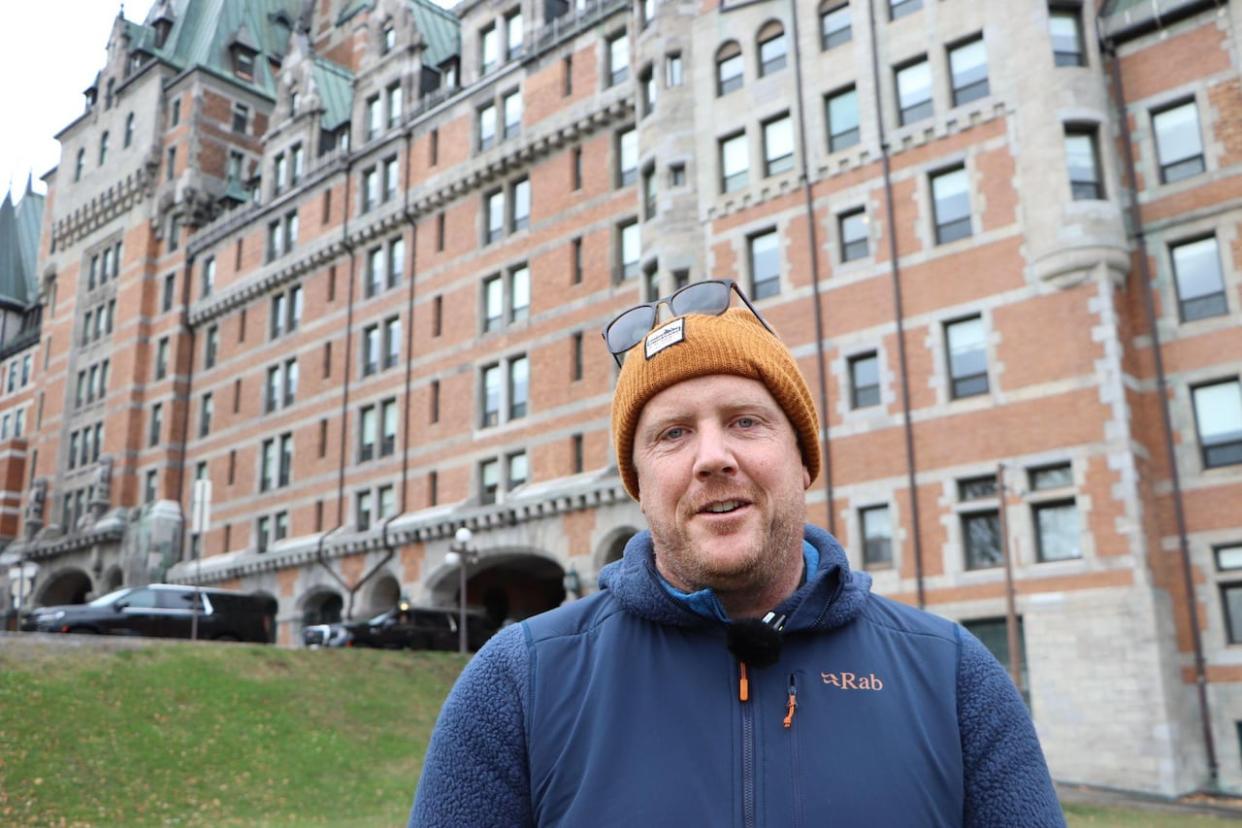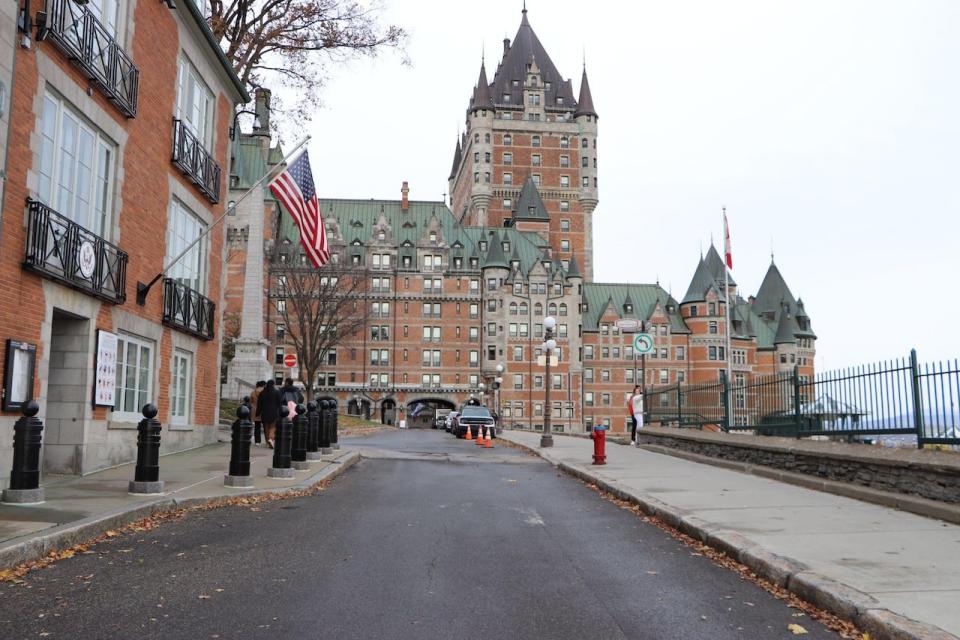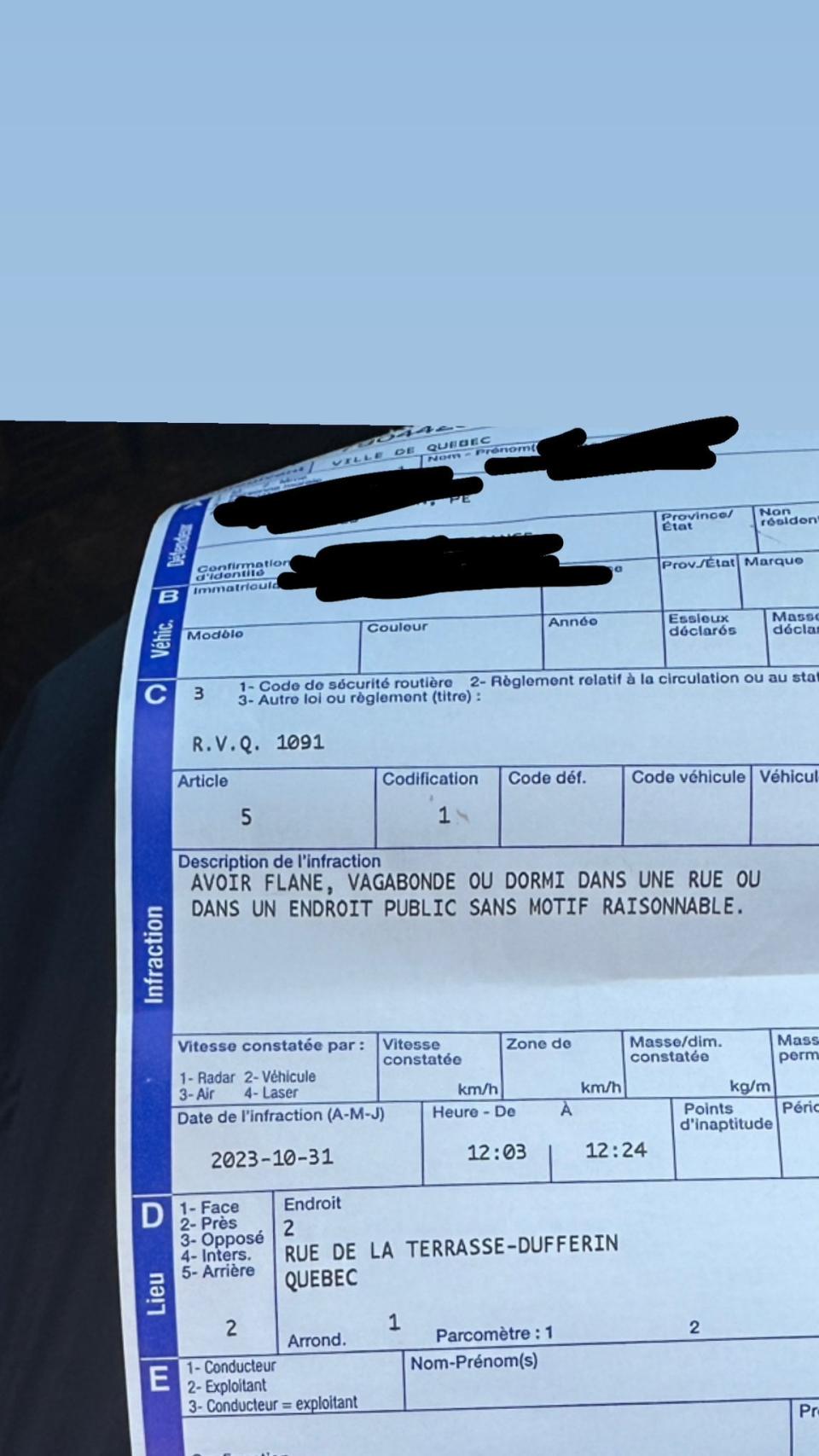P.E.I. photographer handcuffed, fined after taking pictures of Quebec City's iconic Château Frontenac

A professional photographer from Charlottetown, P.E.I., has been fined $230 for "loitering" while he was taking pictures of Quebec City's iconic Château Frontenac hotel.
John Morris says he was standing on a sidewalk opposite the U.S. consulate near the famed hotel around noon on Tuesday, Oct. 31, waiting for some clouds to arrive to get the perfect shot, when police officers approached him and told him to leave.
"[They] said, 'you can't be standing outside for 30 minutes,'" he said.
Morris said he did not understand what he was doing wrong.
"It's a public sidewalk," he said. "I'm not disturbing anybody. I'm not blocking any views. I'm out of the way."
He said he refused to provide his identity unless the police told him what offence he was committing. He said at one point, he took out his phone to film the interaction, and that's when police handcuffed him.
He said the officers only explained that he was loitering and issued the fine for it after he was put in the back of a police cruiser.
"It's absolutely crazy that you would be given a fine for waiting for clouds on a public sidewalk. I'm a professional photographer, I do this for a living," said Morris, who produces books, calendars and jigsaw puzzles with his photographs.
Morris said he has pleaded not guilty and plans on contesting the ticket.
"It kind of does make you question, like what are the rules of being on a public sidewalk in Canada anymore if that's what happens."

John Morris, a professional photographer, said he showed his camera gear to the police officers and explained that he was there to take pictures for a calendar. (Émilie Warren/CBC)
Consulate allegedly 'afraid' of being photographed
Morris said police told him the U.S. consulate was "afraid that I could see inside their building and take photos."
Morris said a guard from the consulate did approach him earlier that day to ask him to leave, but he refused.
"I said 'well, it's a public sidewalk, and I'm allowed to take photos on a public sidewalk."

Morris says he was standing on the sidewalk on the right to take pictures of the Château Frontenac. The U.S. consulate is on the left. (Émilie Warren/CBC)
Quebec City police spokesperson Sandra Dion confirmed that police received a 911 call shortly after noon on Tuesday, about "a suspicious man that was near the American consulate."
She said when the police officers arrived, they determined that the individual was breaking a municipal bylaw and asked him to provide his identity, but he refused, so they arrested him.
Dion confirmed the person was fined but declined to confirm his name or what bylaw he broke.
Dion also declined to say under what circumstances police will arrest someone who is taking pictures near the consulate. "What I can tell you is that it's not every day that we get 911 calls about a suspicious person [near the consulate]," she said.
Not every day, but it's not unheard of. In fact, it has already happened five times this year.
Dion also would not say whether the consulate controls the sidewalks or the park near its building.
The U.S. Embassy in Ottawa declined the CBC's request for an interview. It also would not say if its personnel made the 911 call.
"We take seriously the safety and security of our personnel and visitors to our facilities. We do not comment on U.S. Consulate General security protocols," it said in an email.
What is considered loitering?

John Morris said he plans to contest the $230 fine if the matter goes to court. (Submitted by John Morris)
Quebec City's municipal bylaw says that is "prohibited for a person, without a reasonable motive … to loiter, wander or sleep in a street or a public space."
When asked under what circumstances Quebec City police will arrest or fine someone for loitering, Dion said "it's on a case-by-case basis," and that "it's up to police officers' discretion".
Florence Boucher Cossette, a criminal defence lawyer who has worked on loitering cases before, says the legal definition of the offence is unclear and is used arbitrarily by law enforcement.
"Every day, every single second in this city, people are loitering. So why aren't you arresting them?" she pointed out.
She said Morris likely has a good shot at winning his case, as people accused of loitering when they were sunbathing or drinking coffee on a bench were acquitted in previous cases.
"In terms of defence, he was doing something, he was not loitering and there without apparent reason," said Boucher Cossette. "He was taking photographs."
In the end, Morris never succeeded in getting his perfect shot. "Lo and behold, when the clouds came, I was in the cruiser," he said.


